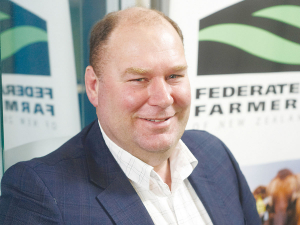New Country of Origin Labelling (COOL) regulations came into effect on 12 February and the new rules have some torn as to their impact.
The new regulations apply to fresh or thawed food items from 12 February and frozen food items from 12 May 2023.
They specifically apply to fruit, vegetables, meat, finfish or shellfish that is only one type and no more than minimally processed, as well as all cured pork.
Under the new regulations, cured pork includes bacon, ham and prosciutto, as well as other preserved pork products that contain at least 66% of whole pieces of pork, such as pickled pork.
However, imported pork processed into other products in New Zealand, including marinated pork and sausages are not covered by the regulations as they fall outside the cured pork definition.
Federated Farmers president and trade spokesperson Andrew Hoggard says the organisation strongly supports voluntary COOL but is concerned by the administration compliance costs and trade implications of mandatory labelling, concerns they have held since the bill for these regulations was first considered in 2017-18.
“We acknowledge that the Bill was improved by the Select Committee and our concerns about costs and trade implications were at least partially allayed to the extent that we now hope that the consumer information standard will work effectively in providing [what] consumers want, in a way that does not impose significant costs on food processors,” Hoggard told Rural News.
He says Federated Farmers is also hoping that the regulations can be implemented while remaining consistent with international obligations.
He adds that the organisation is also concerned the regulations might see a lower price paid to food producers due to rising costs for processors and sellers.
“We can only hope that the requirements of the consumer information standard don’t have such an impact – we will need to wait and see,” Hoggard says.
“On trade implications, again we will need to wait and see as to the response of trading partners,” he says.
“On the plus side, farmers and growers who produce for the domestic market might see increased sales from mandatory COOL but it will need consumers to put their money where their mouths are and buy New Zealand labelled produce when given the choice against imported produce.”
Meanwhile, NZPork chief executive David Baines says that while the organisation wants labelling on all pork products to be more prominent, they welcome the new regulations.
“This will shine a light on this area and give consumers more clarity about the origin of pork in at least some of the further processed products,” says Baines.
He says the organisation will encourage New Zealand pork producers to emphasise and promote New Zealand origin more prominently than required in the regulations. “Kiwis should look for the ‘100 per cent NZ’ pork labelling or NZPork’s PigCare label on pork packaging.
“This will help provide consumers with the confidence that they are ‘buying local’, knowing they are supporting Kiwi farmers and purchasing pork raised to high levels of animal welfare,” says Baines.



















